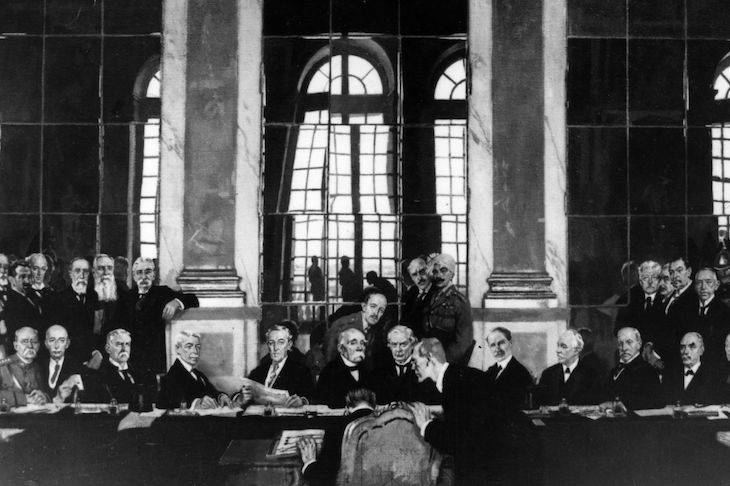When Boris meets Macron at the G7 meeting on 24 August in Biarritz, it will be one of the first international meetings of his premiership. What will be the dynamics of that tête-à-tête? Will Macron resort to the bonhomie he used – unsuccessfully as it turned out – in his first major encounter with Donald Trump when the French President matched his American counterpart’s power handshake? Will they open with references to their respective grandparents, Macron’s British great grandfather and Boris’s half-French grandmother? Or will Macron turn down Britain’s demands with a Gaullian ‘non’? And what will Boris’s stance be? Perhaps jovial and self-mocking (something the French find difficult to deal with), but insistent that the UK will leave without a deal if France doesn’t renegotiate.
More importantly, what will be the crux of their conversation? We have an inkling as of last Friday via France’s European affairs junior minister, who on a visit to the Northern Ireland border underlined French solidarity with the Irish Republic. The French have begun to tug at the UK’s weak spot in Brexit: the Northern Ireland backstop. How should Boris parry this?
He would do well to point the history-loving Macron to an analogy of the UK’s position with Northern Ireland: Alsace-Lorraine.
The two provinces share similar populations of just under two million and similar troubled cross-border histories – Alsace and Lorraine have been swapped between France and Germany no less than five times in the last 150 years. Much like Northern Ireland, Alsace-Lorraine is something of an exception in the otherwise centralised, Jacobin tradition of France. It has escaped to this day some of the essential features of the French Republic, such as the Separation of Church and State due to its German status when the 1905 separation law was implemented.
This year is the centenary of the Versailles Peace Conference when the parties discussed holding a plebiscite in Alsace-Lorraine to decide whether it should stay German or return to France, with the former looking likely following the Germanisation of the region. But France’s war-time leader Georges Clemenceau categorically refused, echoing the popular French anti-German song ‘vous n’aurez pas l’Alsace et la Lorraine’.
Today, Alsace and Lorraine are the quintessential symbol of reconciliation between France and Germany after the second world war. Europe backed that peace process by placing the European Parliament in Strasbourg, the capital city of Alsace. Even so, should there ever be a Frexit, it is unimaginable that French leaders – let alone the French people – would leave Alsace and Lorraine in a ‘backstop’ tethered to Germany, subject to EU treaties and under ECJ jurisdiction, and unable to leave it without permission. It would be unthinkable, no matter how much Brussels might insist that this was likely to re-open Franco-German wounds and the border skirmishes that characterised the period 1870 to 1918.
If then Macron decides to play it tough with Boris over the Northern Ireland backstop – and like his Europe minister warn him against playing games with the Irish border – the British PM should remind him of the Alsace-Lorraine question. Boris might add for good measure that it was Britain’s prime minister David Lloyd George who came to Clemenceau’s aid in rejecting President Wilson’s suggestion that Alsace-Lorraine be subjected to a people’s vote. After the two provinces were amputated from France following the Franco-Prussian war, France’s prime minister in the 1880s Leon Gambetta said to ‘always think’ of Alsace Lorraine, but ‘never speak of them’. Now is the time for Boris to speak out.
Professor John Keiger is a former research director in the Department of Politics and International Studies at the University of Cambridge.







Comments